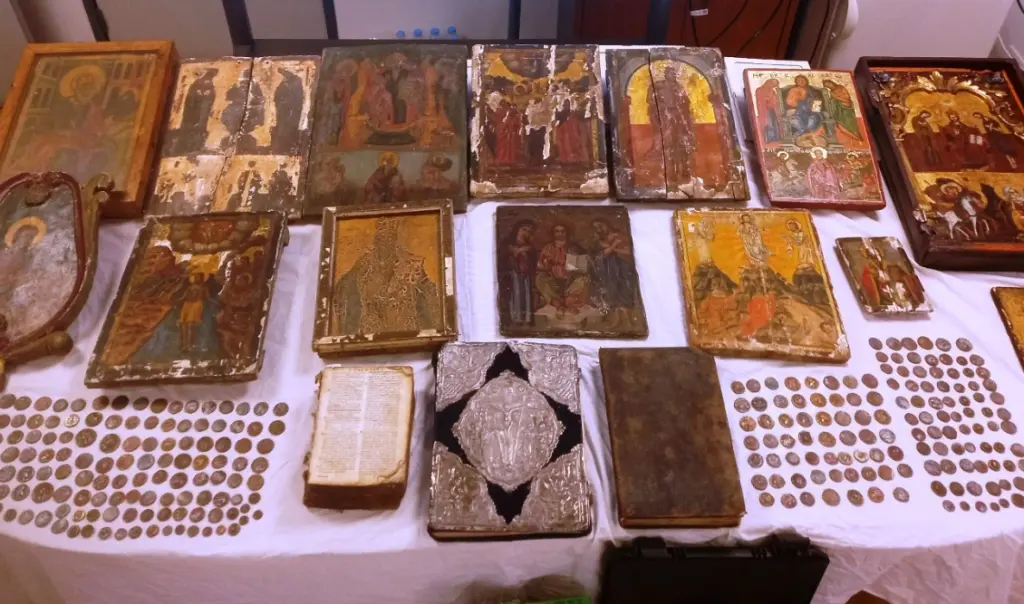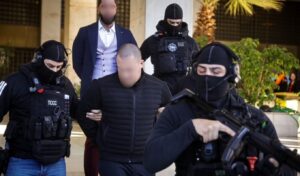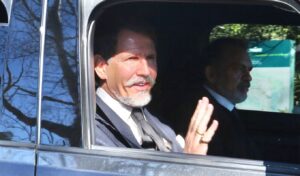Developments are rapidly unfolding around the case of antiquities trafficking and the arrest of the abbot of the Great Cave Monastery in Kalavryta along with his assistant and four other individuals, who attempted to sell to an undercover police officer posing as a buyer 17 Byzantine icons and two 1700s Gospels for two hundred thousand euros.
It should be noted that everything was revealed following an investigation by the Greek FBI, when a police officer, appearing as a potential customer, approached the Abbot and convinced him that he wanted to purchase the icons. During the transaction, the Abbot and another monk allegedly involved in the network were arrested red-handed.
Great Cave Monastery in Kalavryta: Six arrested to testify Thursday for criminal organization
Those involved in the case of attempted sale of Byzantine icons and two Gospels who were brought to the Corinth prosecutor’s office yesterday, requested and received a postponement to testify next Thursday. Criminal charges were filed for forming, directing and joining a criminal organization, which is a felony, embezzlement and failure to declare a monument, possession and trafficking.
The contribution of the police officer who appeared as someone interested in purchasing icons was decisive in the arrest of the abbot, his assistant as well as four other individuals, by the Greek FBI. According to information, the abbot of the Great Cave Monastery in Kalavryta was asking for 200,000 euros for 17 Byzantine icons, as well as for two rare Gospels, dated from 1737 and 1761. Furthermore, some of the icons that the Abbot wanted to sell were stolen from Sparta and there was information that they were located at the Great Cave Monastery.
The 4 arrests by Greek Police
Police officers handcuffed four other individuals. A pawnbroker and his wife, a private individual who sold ancient coins and a middleman. “We were all surprised here in Kalavryta. He is very well known in society and very close to the Kalavryta community,” stated Kalavryta mayor Thanasis Papadopoulos. The news hit the monastic community like a bombshell and the Holy Metropolis of Kalavryta and Aigialeia immediately proceeded to replace the monastery’s abbot.
How the criminal organization operated
According to the Police announcement, members of the organization identified individuals who possessed ancient objects and wished to sell them. They then brought them into contact with their associate, who presented himself as a “specialist appraiser” and after completing the purchase, they proceeded to sell them, through unknown connections of the organization, abroad.
Detailed roles of each member:
- 69-year-old had a leadership role, making final decisions regarding purchases and pricing of antiquities, while appearing as a supposed appraiser,
- 59-year-old and 66-year-old, were tasked with finding people who possessed ancient objects while the latter also conducted archaeological research and excavations,
- 3 individuals (39, 63 and 64 years old) were holders of ancient objects, (Gospels, ancient books and coins and Byzantine icons), which they had agreed to sell.
- The 63-year-old is Abbot of a Holy Monastery in Achaia, while the 39-year-old is a hieromonk of the same Monastery.
What was confiscated
Overall, from the searches conducted in homes and other spaces, among other things, were found and confiscated:
-264- coins,
-14- religious icons,
-2- Holy Gospels and religious book from the 18th century, episcopal medallions, professional metal detection equipment,
-2- hunting weapons,
-262- hunting cartridges, knife,
-12,810- euros gold sovereign,
-2- precision scales,
2- vehicles,
-7- mobile phones, tablet, flashlight and magnifying glass,
-18- photographs depicting ancient objects and numerous documents – notes
The lawyer of the Metropolis of Aigialeia and Kalavryta, Mr. Georgios Beskos stated to ERTnews that the Metropolis will request the case file to be informed and will file a civil lawsuit to secure the Monastery’s interests.
According to an announcement from the Holy Metropolis of Aigialeia and Kalavryta, the Holy Monastery of the Great Cave is proceeding to replace the members of its Abbot Council, according to article 4 of the Monastery’s Internal Regulations. A team from the Ministry of Culture is also participating in the ongoing investigation to assess the value of the religious objects.




